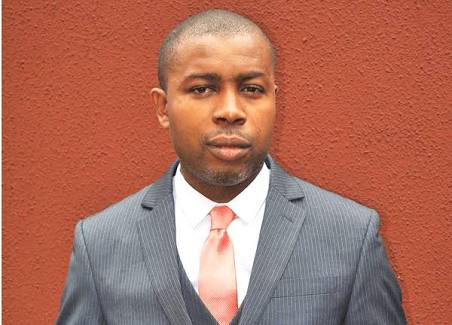Solar panel assembling in Nigeria is still in its infancy in Nigeria as major solar companies are content with importing the various components from Asia and Europe. But Auxano Solar Ltd is a departure from the usual. It built the first solar panel assembling plant in West Africa and has since then caught the eyes of various investors, including the World Bank. In an interview with BUKOLA ODUFADE, Co-Founder and Chief Operating Officer of the company, CHUKS UMEZULORA, talks about the ups and downs of the growing industry.
As a solar panel assembling company, a major issue to deal with is cost, so despite the falling cost of solar systems around the world, is the cost of assembling in Nigeria reflecting this decrease?
Cost is a very tricky issue to deal with when assembling in Nigeria as so many elements are not fixed. But really, we are also dropping our prices as we are competing with a global market; most times, at the expense of our profit margin.
Is it competitive in comparison with its African counterparts and the world at large?

Yes, that’s the idea; to compete with cheaper imports from China. Anything now that’s not benchmarked against China prices won’t fly. It’s easier when you have projects but when you have to sell to importers it’s a lot difficult, as they compare your prices with prices when they buy from China. We are not there yet, but we are very close.
Since your prices are fairly internationally competitive, how is the demand for locally assembled solar panels in the country?
At the moment, there is nothing like demand for locally assembled solar panels. You only have demand for solar panels; demand for solar panels is high but the market needs it at the right price because people’s buying power right now is very low.
Technological advancement is happening rapidly and cost of renewable, especially solar is dropping fast, what position is Nigeria in, in comparison with other African countries in terms of technological advancements and technical skill transfer, are we lagging behind other African countries?
No, I wouldn’t say we are lagging behind other African countries. I dare say, Nigerians are the smartest people in Africa. We need our government to be a bit more committed to their implementation of the local content policy that was signed some time ago. The local content policy is one sure way to ensure we continue to grow and expand our human capacity. We cannot learn until we are willing to make mistakes.
Technical skills and technological advancements are easily transferrable nowadays because the whole world is one big global village. Digital knowledge from the other end of the world like Japan can be swiftly transferred to this part of the world but certain tweaks have to be made to fit the country on the receiving end. In your view, have we been able to re-invent them to match the Nigerian situation?
Re-inventing anything to the Nigerian situation simply means you have to be rugged and determined to succeed against all odds. It has more to do with grit than talent. When you are racking your brains on how to compete with Chinese, who get credit at single digits and rebates for export, without getting any of such support then you are welcome to the Nigerian situation.
Apart from cost, what are the other major hindrances to the growth of the industry?
The biggest hindrances are lack of support for industries; so you have to still import raw materials from China. Maybe second on the list will be easy access to patient credit; and thirdly, consistency in government policies.
You mentioned government policies; does this mean that government has not been a large driver of growth for the solar panel assembling industry in Nigeria, unlike private institutions and international institutions?
For now, the largest drivers are the private institutions.
What incentives and policies have been made by the government to help the local assembling solar panel industry move forward?
Recently, there was an announcement of five percent duty on imported finished solar modules; many in the industry feel it’s not good for the industry, but if well implemented it can stimulate local assembling. Implementation of local content can also drive patronage of locally assembled panels.
Lastly, what are your plans going forward and any other issues in the industry that you would wish to talk about?
Our plans for the future is to scale up as quickly as possible because we have a short-term goal of been able to supply 20 percent of the solar panels being used in Nigeria. There need to be a lot more incentives to firms assembling locally.
Cast your mind back to a few years ago. Chinese products were known as fake while Japanese products (later Taiwan) were perceived for better quality. But a few years down the line it will be hard to differentiate a Chinese mobile phone from any manufacturer globally and they are doing the same thing in the automobile industry. Give them a few years now and we will be buying cars from China.
We must be willing to try even when it’s obvious we might fail, but without trying at all, how will I know I can’t? With trying and failing comes perfection.










